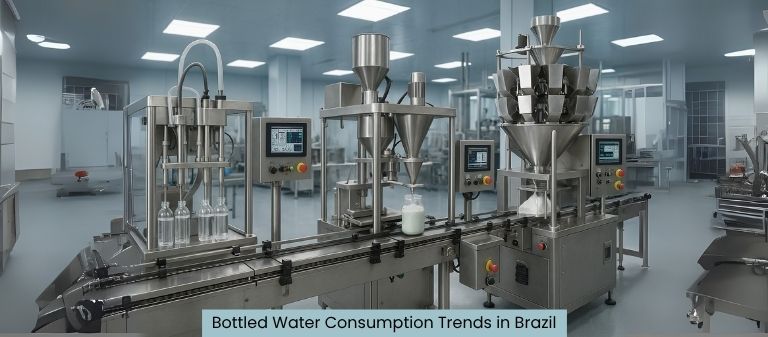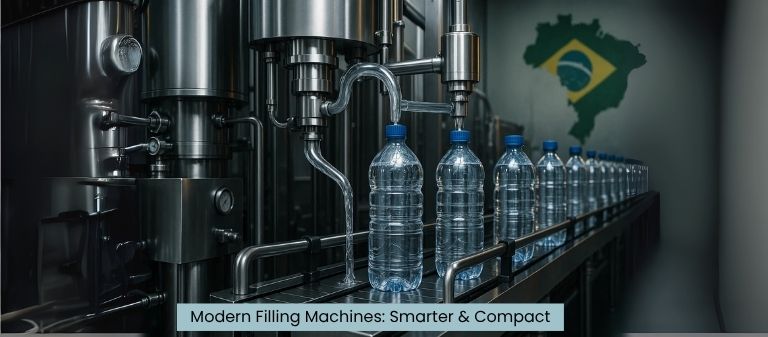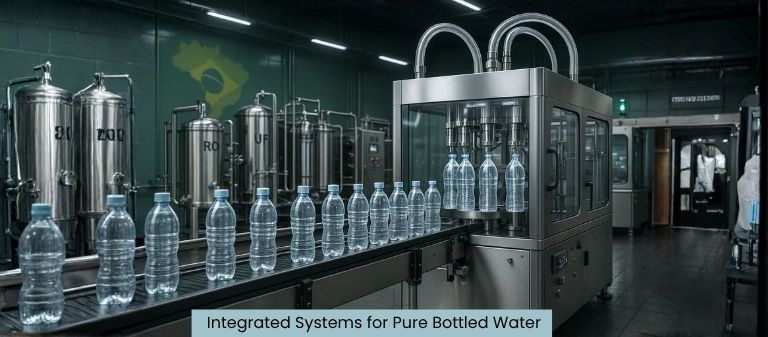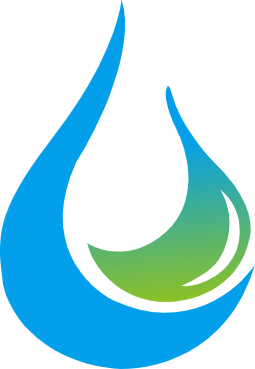
Brazil, with its vast natural freshwater reserves, is uniquely positioned to be a leader in the global bottled water industry. Over the past decade, there has been a significant uptick in bottled water consumption throughout the country. Driven by urbanization, health awareness, and the need for safe drinking water, the market is expected to surpass billions in annual revenue in the coming years.
As consumers grow increasingly concerned about tap water quality and look for healthier beverage alternatives, bottled water has emerged as the beverage of choice. According to recent reports, Brazil ranks among the top ten countries globally for bottled water consumption, with the average Brazilian consuming more than 40 liters per year. This growth isn’t just limited to major urban centers like São Paulo and Rio de Janeiro—rural areas are also experiencing a rise in demand due to limited access to consistently safe municipal water supplies.
For both domestic and export markets, there’s never been a better time to invest in water bottling infrastructure. But to capitalize on this boom, Brazilian producers need to look beyond just water sources—they must also prioritize efficiency, hygiene, and technological integration in the bottling process.
Apart from consumer demand, there are significant environmental and public health drivers behind the rise of bottled water in Brazil. Natural disasters, poor infrastructure in rural areas, and occasional contamination incidents in city water systems have all heightened the public’s distrust in tap water. As a result, bottled water is often perceived as the safer, more reliable option.
Moreover, with the global trend toward healthy living, more Brazilians are shifting away from sugary sodas and toward pure, clean water. This health-conscious shift aligns well with governmental efforts to promote better hydration habits and reduce chronic illnesses linked to poor dietary choices.
Yet, as the industry grows, it also faces challenges. Environmental concerns around plastic waste and energy consumption in water production have become central to discussions. Therefore, efficient and environmentally conscious production equipment—like those offered by Kunsheng Water Treatment Co., Ltd.—is becoming increasingly essential.
Efficiency isn’t just a buzzword in the bottled water industry—it’s a critical factor for profitability, scalability, and sustainability. For Brazilian producers, keeping operational costs low while scaling production to meet rising demand is key. That’s where modern, high-performance filling machines play a vital role.
Efficient filling machines minimize product loss, reduce energy usage, and help bottlers achieve higher throughput without compromising on quality. Traditional bottling methods often lead to spillage, inconsistent fills, and downtime due to manual labor or faulty equipment. These inefficiencies not only cut into profits but also waste valuable resources like purified water and energy.
Kunsheng’s machines are engineered with precision to address these issues head-on. Whether it’s a small bottle or a large 20-liter barrel, their systems ensure that every drop counts. Machines like the 8000 b/h or 10000 b/h three-in-one units optimize every stage of production—from rinsing and filling to capping—ensuring streamlined operations and minimal waste.
Additionally, reduced human intervention means less contamination risk and faster operations. Fewer hands touching the product translates to higher hygiene standards, an essential requirement for bottled water manufacturers aiming to comply with both local and international health regulations.
In a product as sensitive as bottled water, hygiene isn’t optional—it’s non-negotiable. Even minor lapses can lead to contamination, product recalls, or worse, consumer health hazards. For this reason, automation and technological integration are becoming the cornerstones of safe and successful water bottling plants in Brazil.
Kunsheng’s filling machines are built with stainless steel and food-grade materials, ensuring the highest level of sanitation. Features such as UV sterilization, ozone generators, and ultra-filtration systems are often integrated directly into the machines, enabling full-spectrum protection against bacteria, viruses, and other contaminants.
Furthermore, Kunsheng’s systems are designed to seamlessly work with reverse osmosis (RO), ultrafiltration (UF), and electrodeionization (EDI) units, creating a comprehensive closed-loop solution. This integrated approach drastically reduces the risk of external contamination and ensures that the bottled product meets the strictest purity standards—perfect for both domestic sale and export markets.
In Brazil, where regulations by ANVISA (National Health Surveillance Agency) are stringent, such standards are not just recommended—they’re required. Investing in Kunsheng’s high-efficiency machines means meeting those standards with confidence.

Gone are the days of clunky, standalone machines that needed constant supervision. Today’s filling technology is all about integration, compact design, and intelligent automation. Kunsheng’s filling systems exemplify this evolution. Their three-in-one and fully automatic barrel filling machines consolidate rinsing, filling, and capping into a single streamlined unit.
This consolidation saves factory space, reduces electricity usage, and simplifies training for operators. For Brazilian bottlers working in tight or high-cost urban industrial zones, the space-saving element alone is a game changer.
Additionally, the modular design of these machines allows for future upgrades. As demand grows, Brazilian producers can easily scale their operations by adding compatible systems without a complete overhaul. This flexibility makes Kunsheng’s technology ideal for both new businesses and large-scale industrial players.
Modern filling machines are no longer just mechanical workhorses—they’re smart. Kunsheng’s systems come equipped with advanced control panels, touchscreen interfaces, and programmable logic controllers (PLCs) that let operators monitor and manage every aspect of production in real-time.
These smart features allow for automated adjustments based on bottle size, fill volume, and production speed. Any inconsistencies or mechanical issues are flagged immediately, minimizing downtime and preventing quality issues.
For companies operating in competitive Brazilian markets, this reliability and intelligence can mean the difference between staying ahead or falling behind. Predictive maintenance features and remote diagnostics are also becoming standard, enabling technicians to identify and resolve issues before they become costly breakdowns.
Kunsheng isn’t just a manufacturer of machines—they’re architects of end-to-end water production systems. From raw water treatment using reverse osmosis and UV sterilization to the final bottling and packaging, Kunsheng provides everything a water bottler needs to build a factory from scratch or upgrade an existing one.
Their deep expertise in water treatment—RO, UF, and EDI—means that the filling machines are not just tacked-on equipment but central parts of a fully synchronized system. This synergy between purification and packaging ensures peak efficiency, minimal contamination risk, and regulatory compliance from start to finish.
For Brazilian businesses looking to enter or expand in the water bottling space, Kunsheng offers not just equipment but a partnership for success.
With a client base spanning the USA, Australia, Saudi Arabia, South Africa, and indeed Brazil itself, Kunsheng’s technology has proven reliable across diverse markets and operating conditions. This global footprint translates into a wealth of experience, continuous innovation, and a commitment to international quality standards.
Brazilian bottlers benefit from this legacy. When choosing Kunsheng, they gain access to machines designed for durability, minimal maintenance, and high-volume production—all backed by proven engineering and global service support.
Brazil presents a unique industrial environment. From large-scale operations in São Paulo to emerging water bottling facilities in smaller states like Goiás or Maranhão, the market demands filling machines that are versatile, scalable, and resilient. Kunsheng understands this landscape and delivers equipment capable of thriving in these diverse operational environments.
Brazilian businesses often face logistical and infrastructure challenges—unreliable power supply, remote plant locations, and varying levels of technical expertise among workers. Kunsheng’s machines are engineered to address exactly these issues. Their plug-and-play systems come with user-friendly interfaces, minimal maintenance needs, and require low operator training, making them ideal for both urban and rural deployment.
Moreover, Kunsheng filling machines are available in a variety of capacity configurations, from 150 b/h to over 10,000 b/h. This allows producers to start small and gradually scale operations without needing to change their entire equipment ecosystem. Whether it’s a community-based water station in Bahia or a high-output bottling plant in Rio, Kunsheng offers tailored solutions that meet the operational scale and budget of each client.
Government incentives and the rise of public-private partnerships in Brazil also present opportunities for companies to expand water production capabilities, especially in underserved regions. Kunsheng’s systems, due to their durability and consistent performance, are frequently selected for such initiatives that aim to ensure clean drinking water for all.
One of the standout features of Kunsheng’s offering is its wide range of capacity options and machine configurations. This is especially important in Brazil, where the bottled water market includes everything from 330ml sport caps to 20-liter family-sized barrels.
Let’s break down the options:
Kunsheng’s adaptability to different bottle types and production volumes is a game-changer in Brazil’s diverse market. From catering to boutique water brands offering artisanal mineral water from the Amazon, to mass-market purified water suppliers serving major metros, the right machine exists for every scenario.

Brazil’s bottled water manufacturers need more than just a filling machine—they need an integrated system that guarantees water purity from source to bottle. That’s where Kunsheng excels.
Kunsheng’s filling machines are designed to work as part of a comprehensive system that includes:
By integrating these advanced water treatment processes directly into the bottling system, Kunsheng provides a seamless, closed-loop operation. This integration is not only space-saving but also critical for maintaining consistent water quality throughout production. For Brazilian producers facing fluctuating water quality depending on region or season, this reliability is invaluable.
Moreover, the post-treatment integration—including UV sterilizers, ozone generators, and pressurized tanks—adds additional layers of safety. These features help water bottlers meet not only ANVISA’s rigorous quality control measures but also international standards for export products.
This level of integration ensures that every step—from raw water intake to the capped bottle—is monitored, controlled, and optimized for safety and efficiency.
In the high-humidity, high-temperature environments common in much of Brazil, machine durability is non-negotiable. Kunsheng addresses this with machines built using robust, corrosion-resistant stainless steel (typically SUS304 or SUS316), ensuring long-term performance in demanding factory settings.
All contact parts are made of food-grade materials, and the machines are built under ISO-certified manufacturing practices. These standards ensure hygiene and product safety, two areas that are heavily regulated in the Brazilian bottled water sector.
The automated CIP (Clean-In-Place) system also allows for thorough internal cleaning without the need for disassembly—saving time, reducing labor costs, and ensuring continuous sanitation.
For Brazilian businesses investing in long-term production facilities, this durability and hygiene compliance translates into better ROI, fewer downtimes, and higher consumer trust.
In an era where digital transformation is reshaping every industry, bottled water production is no exception. Kunsheng integrates smart automation into all of its modern filling machines, offering advanced features such as:
These systems are ideal for Brazilian manufacturers looking to adopt Industry 4.0 principles. With real-time analytics, predictive maintenance alerts, and fault detection systems, operators can address issues before they affect production. This is particularly beneficial in Brazil, where maintenance delays can be costly due to regional supply chain challenges.
Kunsheng’s smart automation doesn’t just reduce labor costs—it boosts consistency, safety, and scalability.
Brazil’s geographic vastness can make on-site technical support a logistical challenge. Kunsheng mitigates this with systems that allow for remote diagnostics and software updates. Using internet-connected panels, engineers can troubleshoot issues, guide repairs, and even update firmware without needing to visit the plant in person.
For water producers in remote states or those operating on tight maintenance budgets, this feature is a major advantage. It minimizes machine downtime and ensures constant production, even in case of technical faults.
Additionally, Kunsheng provides detailed user manuals, training programs, and after-sales service to ensure smooth installation and operation. Brazilian companies can rest easy knowing they have global-grade technical support with localized adaptability.
Efficient filling machines aren’t just a short-term fix—they’re a long-term asset. In Brazil’s competitive bottled water market, producers must think strategically about investments that support growth, reduce waste, and deliver consistent product quality.
Kunsheng’s machines offer:
These benefits add up over time, delivering significant ROI for plant owners. And with increasing demand and tightening health regulations, producers can’t afford to rely on outdated, labor-intensive systems.
For entrepreneurs, SMEs, and established brands alike, Kunsheng offers a foundation for sustainable expansion and market leadership.
Though Kunsheng is a globally recognized brand, it remains committed to local success stories. Their ability to customize solutions for Brazilian clients—from language-localized interfaces to climate-adapted builds—makes them a true partner rather than just an equipment supplier.
With local support channels, remote diagnostics, and training programs, Kunsheng ensures that their clients in Brazil are fully equipped to succeed—now and in the future.
Brazil’s bottled water industry is growing rapidly, and efficient, hygienic filling machines are key to keeping up with demand. Kunsheng Water Treatment Co., Ltd. offers advanced, reliable systems that meet both Brazilian regulations and global standards. With automated features, smart controls, and scalable solutions, Kunsheng helps producers streamline operations, reduce costs, and deliver safe, high-quality bottled water across the country.


Olivia : +86 15168506513
Lydia : +86 15253672282

